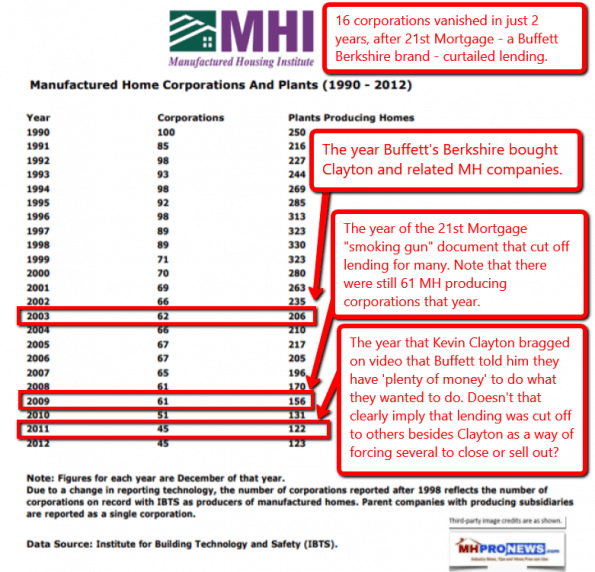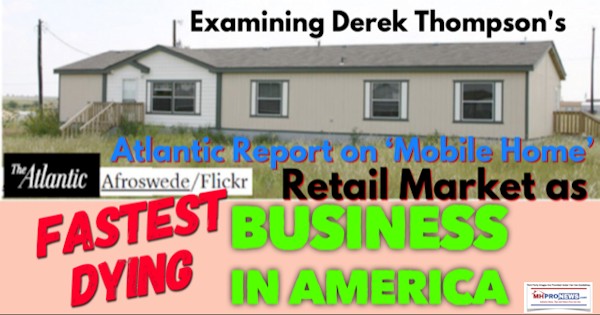
“At the center of a perfect storm of boomer burnout, a brutal recession, and a rapidly changing industry, the mobile home retail market could be the worst industry in America. Here’s why,” wrote Derek Thompson as his subheading on a story for the Atlantic, a popular progressive news and views website. With a raging affordable housing crisis in the U.S., or in Canada for that matter, how is this contraction possible?
At the time Thompson’s report was published, it was the headline that shocked many in the manufactured housing industry. That headline sparked controversy, which wasn’t limited to the threat to manufactured home retail, but could have been misread as a challenge to the existence of other parts of the industry.
That headline? “America’s Fastest-Dying Business? It’s Mobile Homes1,” said Thompson. Across the left-right divide in manufactured housing professional circles, Thompson’s narrative sent shock waves and reactions, including commentary and reports here on MHProNews.
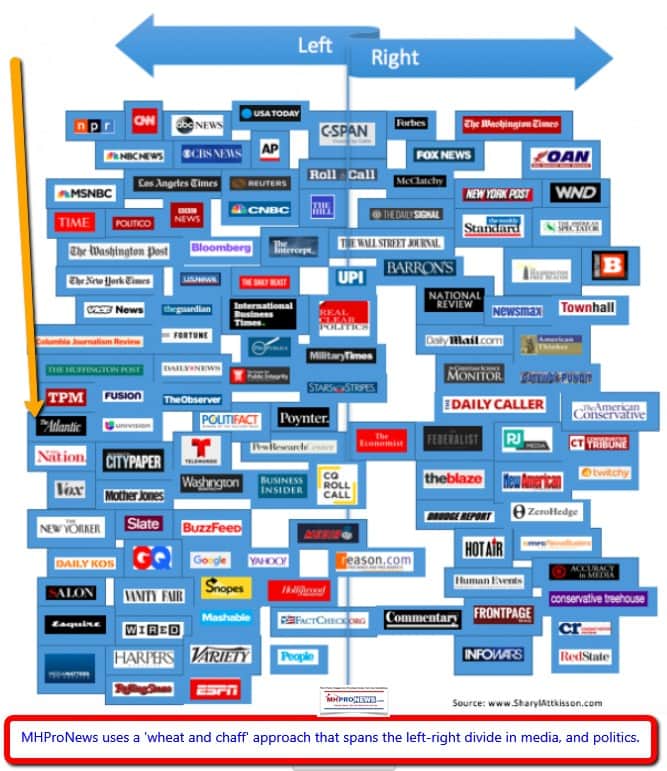
But in hindsight, Thompson – who obviously erred in terminology when he referred to federally regulated, HUD Code manufactured homes as ‘mobile homes‘ [SIC] – was citing serious data. Besides the error in terminology, was there any other oversights or misses in Thompson’s report?
To properly analyze any study, research, or statements, one ought to first admit that no single report can cover every detail or nuance. This report, like Thompson’s or any other is self-limiting. Facts, quotes, and statements are used by a writer who could have arranged them in a variety of ways. That years later, Thompson’s work in the Atlantic is worthy of review stands on its own merits.
The Daily Business News on MHProNews is hereby looking back at the Atlantic report, a section-by-section “Fisk” or fact-check of what was good, bad, or possibly missed. While this focused on retailers – what Thompson calls “dealers” – it should be more broadly understood by manufactured housing (MH) investors and professionals as impacting every part of the industry. Why? Because then and now, a large part of the industry’s production goes to market via retailers. Having – or not having – a sufficient number of independent retailers has and still does place pressures on manufactured home producers, communities, suppliers, installers, transporters, financial service firms, and arguably all others throughout the industry.


Following his subheading quoted above, Thompson wrote as follows. “If I asked you to name America’s least fortunate industry, your mind might go to records stores, obliterated by on-demand apps; or photofinishers, left in the cold as digital cameras turn Americans into our own photo editors; or fabric makers, where business is booming … in Shenzhen, China.
But when it comes to unlucky industries, it’s manufactured home (aka mobile home) retailers who really hit the trifecta*. First they missed out on the housing boom. Then they felt the gut-punch of the recession. Now they might yet might miss out on the recovery. That makes them America’s fastest dying industry, according to a new report from IBISWorld.”
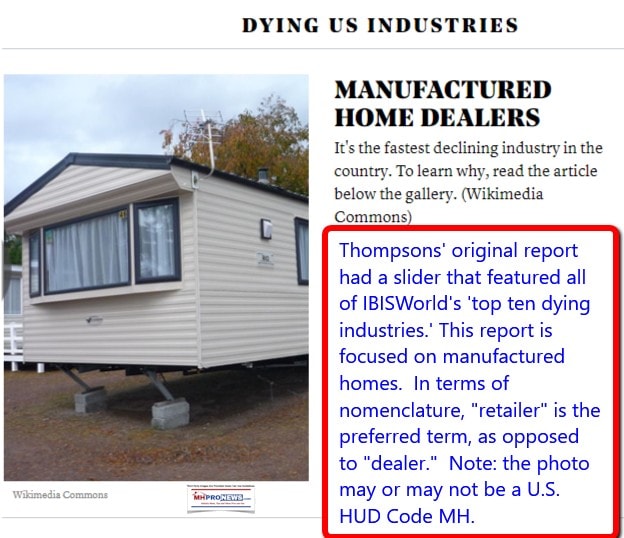
If Thompson was referring to the conventional housing boom of the early 2000s, he was quite correct in saying that manufactured housing missed it.
But in the early 2000s, Eric Belsky of Harvard University’s respected Joint Center for Housing Studies (JCHS) had been researching manufactured home quality, and the industry in general. Based upon his research, Belsky projected that despite of the slide in manufactured home sales due to the arguably self-inflicted wound of a repossession glut in the late 1990s and the early 2000s, Belsky’s study and analysis led him to believe that given the need for affordable housing plus the improved quality of manufactured homes, would lead the industry into housing dominance by 2010.
So, Thompson mentioned none of those points by Harvard’s Belsky.
That said, the projection by Belsky proved to be wrong, for reasons noted and explored as part at the report linked below.
Bridging Gap$, Affordable Housing Solution Yields Higher Pay, More Wealth, But Corrupt, Rigged Billionaire’s Moat is Barrier – manufacturedhomelivingnews.com
America woke up today to division. But perhaps 75 percent (+/-) of the nation’s people could come together on a plan that demonstrably could do the following. Increase the U.S. Gross Domestic Product (GDP) by some $2 Trillion Annually, without new federal spending.
Back to Thompson’s narrative in the Atlantic.
“With a 70+% decline in revenue over the last ten years, the mobile home industry faced a descent on par with record stores and clothing mills. But it’s the pace of its future decline that sets them apart. In the next six years, manufactured home dealers are projected to see revenue evaporate 50% faster than even music stores and the wired phone industry. Here are full IBISWorld rankings, listed by industry revenue.”
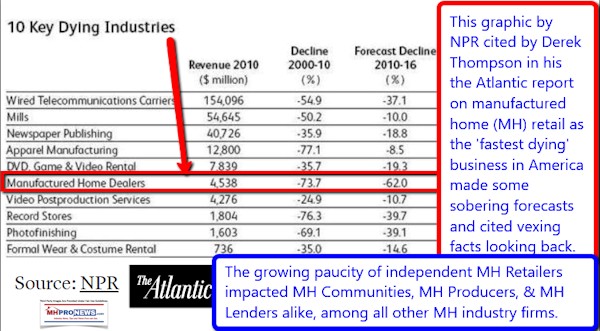
***
Noting again the error in industry terminology issue, which should have said manufactured home, Thompson wrote, “The typical mobile home buyer is a retiring, low-income couple in the southeast, said Mary Gotaas, an analyst at IBISWorld. The southeast region accounts for 40% of the industry’s dealership, and mobile homes are usually bought by consumers over the age of 50. “They’re retiring, they don’t care about equity or link-to-land ownership, and they want something cheap because they’re saving for things like medical bills,” she said.”
Ironically, at about that same time, HUD was producing a PD&R that reflected university-level research on manufactured housing. Here’s how HUD describes a PD&R, “The U.S. Department of Housing and Urban Development’s (HUD’s) Office of Policy Development and Research (PD&R) supports the Department’s efforts to help create cohesive, economically healthy communities. … It is intended to help you identify PD&R data sets that can be used as a basis for your research or analysis.”
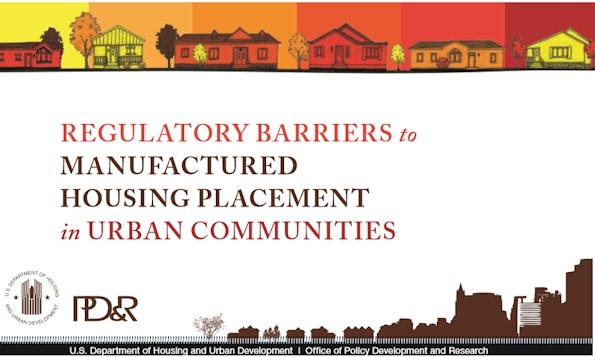
That roughly 8 year old research commissioned by HUD made the point that the data reviewed proved that manufactured homes could and did appreciate in value, and that it did do so side-by-side with conventional housing in urban neighborhoods as infill. Some of the biggest ‘hits’ on the manufactured home industry’s products and value-proposition were being debunked by university level scholarship.
Returning to Thompson’s narrative in the Atlantic, ““Thirty years ago, I had a list of 90 manufactured homes makers,” said Thomas Roberts, a real estate agent with Century 21 Realty in Fremont, California, who works with mobile home makers. “Today, I don’t think there are more than 25. Nobody’s opening mobile home parks.”
Both of those claims were exaggerated at best, and were demonstrably errant. But Thompson was quoting someone else’s claim. And while factually wrong, the trend lines were broadly relevant.
There were dozens of fewer factories, and the creation of new manufactured home (MH) communities had slowed to a trickle. As noted above, all of that can be traced in part to a restriction of capital/financing. That impacted the occupancy rates of MH communities, and thus also the creation – or lack thereof – of new land-lease communities.
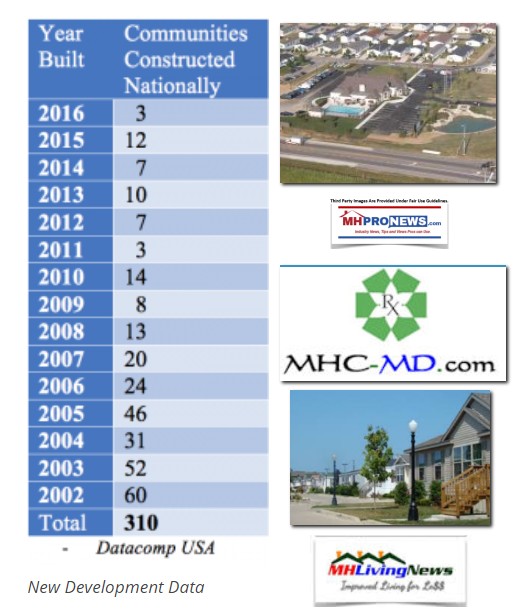
Thompson next said, “Five broad factors account for the mobile home industry’s long slide. First, the housing bubble’s loose credit encouraged low-income families to buy regular “site built” homes instead of mobile homes. Second, the recession hit low-income folks who comprise most of the mobile home market harder than average. Third, the housing bubble’s collapse killed the price of houses and condos, making them a better deal for low-income families (especially since manufactured homes depreciate in value, while a house’s value increases over time). Fourth, older couples who would normally sell their house to buy a mobile home are waiting for the value of their houses to rebound. When the market recovers, they’re more likely to buy “modular homes,” which differ from mobile homes because their walls are put together on site.”
That is once more laced with errors and accurate insights alike. Modular homes are built in modules, with the walls already assembled, plus an ongoing terminology issue, misusing ‘mobile homes’ when he means ‘manufactured homes.’ But those errors aside, several point are broadly correct. Furthermore, in Thompson’s defense, he was citing third-party sources. So, he might be forgiven technical industry errors in writing a one-and-done column about what he thought was a dying industry.
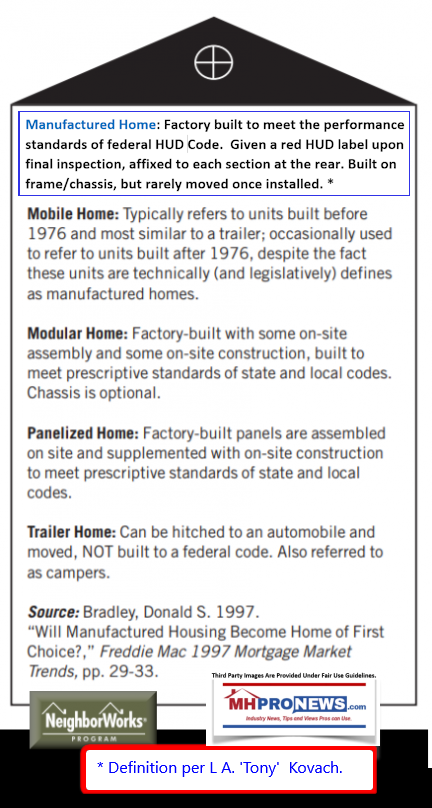
Thompson rolls on in his narrative in this fashion.
“Fifth, and most importantly, even when demand for mobile homes returns, retailers might be left in the dust. A new trend in mobile homes is for manufacturers to open their own outlets, so that retailers are bypassed.” That was a telling comment, on what industry professionals refers to as vertical integration.

https://www.manufacturedhomepronews.com/manufactured-housing-industry-new-hud-code-home-retailing-more-exploring-going-vertical/
Wrote Thompson, “I actually think the next six years are going to shape up for [mobile homes] really well,” said Thayer Long at the Manufactured Housing Institute. “People are looking for smaller homes, and dollar-for-dollar, we offer the best house.” Thompson or his editor clearly should not have inserted “mobile homes” in brackets, given that Thayer Long well knew that they are HUD Code manufactured homes. For newcomers, in the U.S., there have been no mobile homes built in the U.S. since June 15, 1976, in Thompson’s misinterpreted sense of the term. In Canada, their mobiles homes of the past, gave way to their Z240 code for manufactured homes decades ago as well.
But what followed from Thompson was arguably vexingly correct, “The future of the industry will resemble Clayton Homes, a mobile home conglomerate which was acquired by Warren Buffet in 2003. Clayton started as a retailer, but they’ve expanding into manufacturing, financing, leasing, and insuring mobile homes. Now the company is a do-it-all industry leader that even serves as a distribution center for other manufacturer’s homes. Thus sounds the death knell for private mobile home retailers.”
While that was broadly accurate, what Thompson did not note was how this was being accomplished. Once more, the facts presented in the report previously linked or here paints a more complete picture.
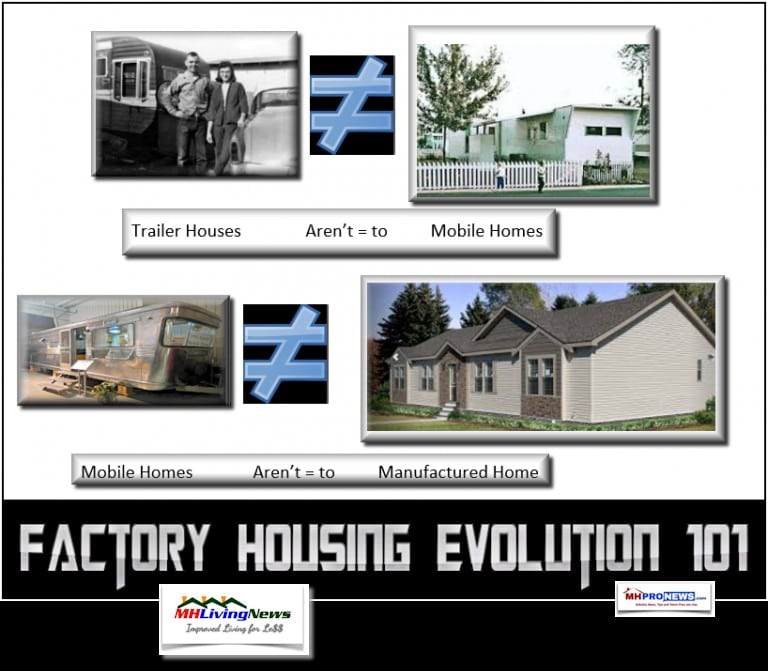
Disclosures About Disclaimers
Think about this fact. Mainstream news media routinely uses other firms logos, content, videos, and images. How do they do that without getting sued for copyright violations?
Short answer?
First, we are not attorneys, but our reading of what federal websites and the courts have upheld is the following. That under the principle of “fair use,” media is able to use others content in specifically defined ways. So, when a firm like MHProNews uses Clayton Homes, 21st Mortgage, or the Manufactured Housing Institute logo of content, and stays within those “fair use” for news-media lanes, they are a legal defense from a claim of copyright infringement.
That’s mentioned for a few reasons. One, while the Atlantic provided their fair use disclosures in their article by Derek Thompson differently than MHProNews has been doing for years, they gave disclosures too. No doubt, those disclosures where provided with fair use guidelines in mind.
Here is how the Atlantic finished up their disclosures on Thompson’s article.
“Photo: Afroswede/Flickr
____
*Contrary to common belief, today’s manufactured or mobile homes don’t all look like 1960s caravans, with the cinder-blocks and wheels. Manufactured homes are prefabricated houses built entirely off site and delivered to where the family has leased land. They can look awfully like real “site built” homes. See for yourself on Clayton’s gallery of manufactured and modular homes. The word “mobile” doesn’t always to their constantly moving — although many mobile homes are built on wheels — but rather their ability to be transported when needed.”” MHProNews Footnote 1: coming from a non-MH industry professional, that’s a pretty good mainstream explanation of a manufactured home.
Thompson and/or his editor used a British expression “1960s caravans” to distinguish the mobile homes of the past, with the manufactured homes of today. At the end of their article, they essentially corrected the terminology errors the rest of the Thompson article used. That is arguably better than many in mainstream media do, given that thousands of articles or videos errantly use ‘mobile home’ indiscriminately and/or interchangeably with manufactured homes.
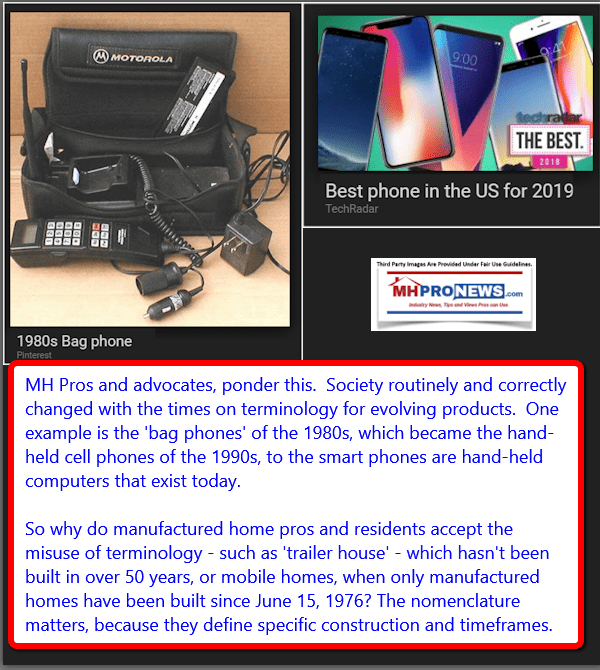
There are phases are different points in the evolution of the factory-built home industry history, just as there has been an evolution in telephones, computers, automotive or scores of other industries. For instance, one doesn’t properly call an old bag phone from the 1980s – the early version of a cell phone to the smart phones of today. The two are different, but the former evolved over the years into the later.
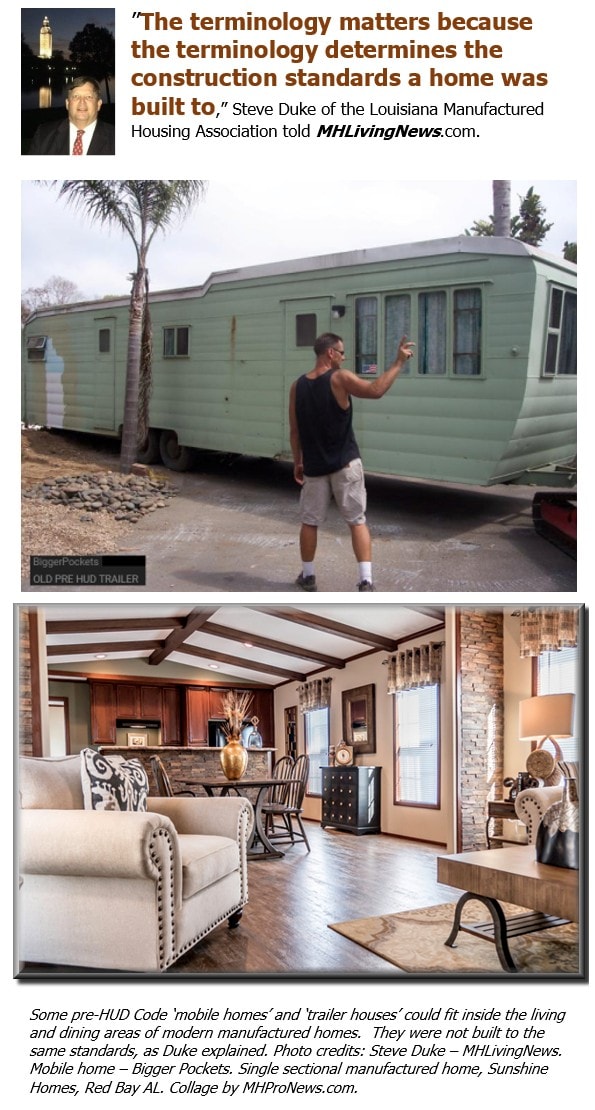
the terminology determines the
construction standards a home was
built to,” Steve Duke, LMHA.
Thompson’s article linked to Clayton’s website. It bears mention that an article last year in the Boston Globe, didn’t link Clayton’s site, but it did spotlight Clayton Homes produced homes and pricing. More on that another time.
Finally, about what some might see as the overuse of third-party discourse notices on MHProNews. MHI has had multiple attorneys over the course of years sending threatening letters to the publisher of MHProNews. Among those are “cease and desist” letters are complaints about the use of a logo, which were part of the fisking of their content. Those attorneys arguably must know – if they are worth their salt – that they have no legal leg to stand upon. That’s not to say that they can’t sue. In America, almost anyone can. But MHI – and the powers behind their throne – must know it is a hollow threat in the sense that they realize that MHProNews is operating within the guidelines of fair use.
What MHI attorneys, leadership – elected or staff – have not done is debunk or disprove any of our research. They arguably want to silence this platform, which is demonstrated in a variety of ways. But emailed invitations as recently as last week to: Clayton, 21st, Cavco, Nathan Smith/SSK Communities, and MHI’s staff leadership have yet provided not a single intelligent response that debunks a even one claim or concern raised here or on MHLivingNews. Rather, MHI and their powers-that-be demonstrably have used efforts – like threats of litigation – to silence us by threats and intimidation tactics?
What should that tell the industry’s readers and investors?
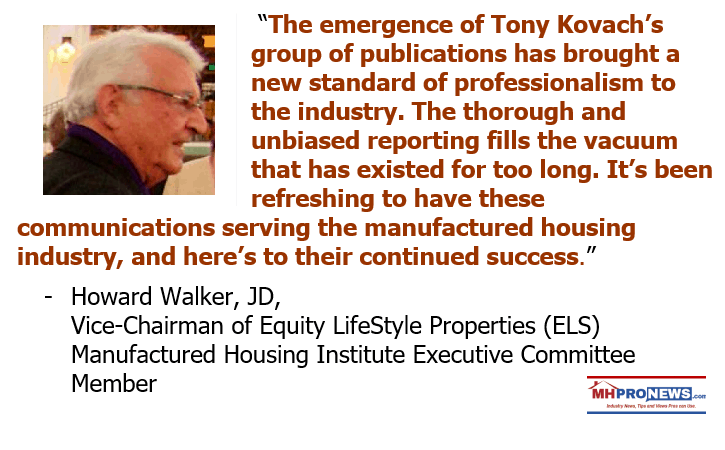
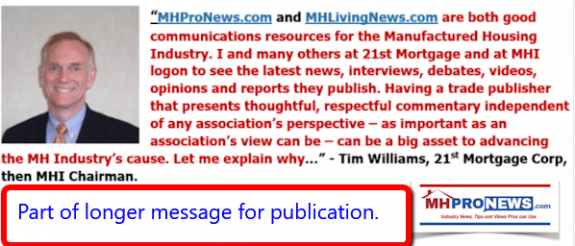
What messages from readers and third-party metrics tells us is this. Our readership – which was already the runaway #1 in manufactured housing trade media – has skyrocketed since we began our exposes of the purportedly rigged, corrupt system that the Omaha-Knoxville-Arlington axis and their allies have used to slowly monopolize manufactured housing. What this article in the Atlantic did was identify the trend. What the Atlantic’s Thompson didn’t do is identify how that was done by manipulating capital, credit, and more. Again, click here to learn more.
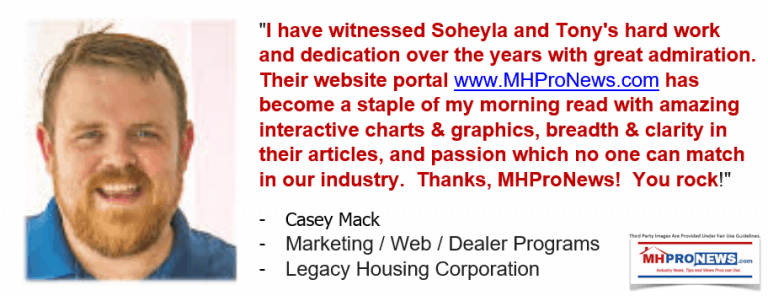
Others think that they also benefit Omaha-Knoxville-Arlington axis and what is arguably a rigged system too. But there are growing voices within those operations that confirm and thank us for reports like this one. The rise of former MHI members, who launched new trade groups, or left MHI, are evidence that the research here is based on realities that others in manufactured housing recognize, and are acting upon.
Atlantic/Thompson Fisking Takeaways?
Are independent manufactured home retailers SLOWLY dying?
The trend lines say, sadly, yes. A state association executive said almost the same rate of decline in the total number of independent retailers roughly a year ago. Facts and trend lines are what they are.
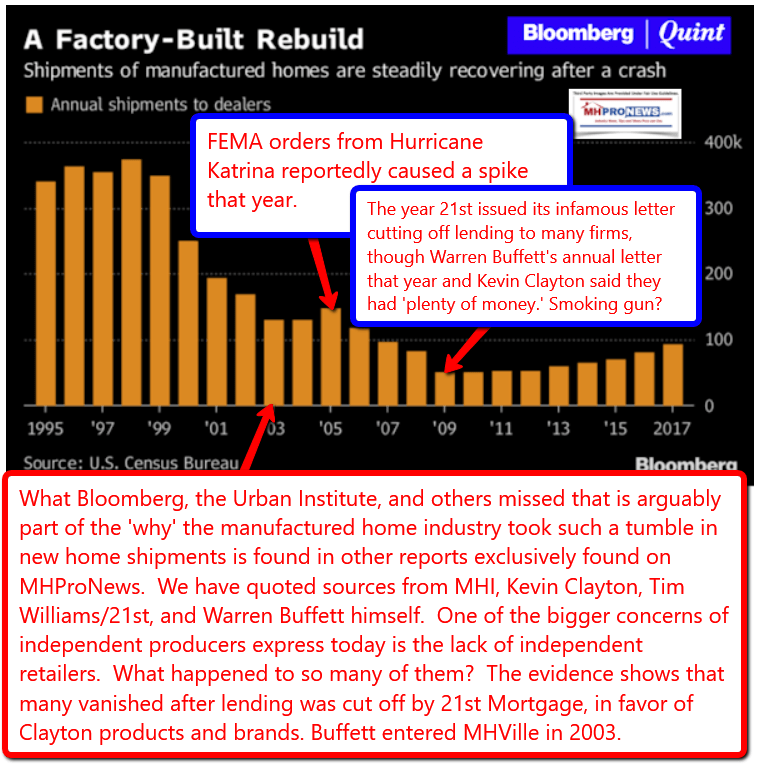
Spotlighting this trend is debatably necessary as part of the process for the underlying causes of affordable housing’s crisis. “We Provide, You Decide.” © (News, analysis, and commentary.)
NOTICE: You can get our ‘read-hot’ industry-leading emailed headline news updates, at this link here. You can join the scores who follow us on Twitter at this link. Connect on LinkedIn here.
NOTICE 2: Readers have periodically reported that they are getting a better experience when reading MHProNews on the Microsoft Edge, or Apple Safari browser than with Google’s Chrome browser. Chrome reportedly manipulates the content of a page more than the other two.
(Related Reports are further below. Third-party images and content are provided under fair use guidelines.)
1) To sign up in seconds for our MH Industry leading emailed news updates, click here.

2) To pro-vide a News Tips and/or Commentary, click the link to the left. Please note if comments are on-or-off the record, thank you.
3) Marketing, Web, Video, Consulting, Recruiting and Training Re-sources

Related Reports:
You can click on the image/text boxes to learn more about that topic.
New Era in National U.S. Manufactured Home Community Representation Underway?
Production Decline Continues in November 2018 | Manufactured Housing Association Regulatory Reform
Washington, D.C., January 3, 2019 – The Manufactured Housing Association for Regulatory Reform (MHARR) reports that according to official statistics compiled on behalf of the U.S. Department of Housing and Urban Development (HUD), HUD Code manufactured home production declined once again in November 2018.
https://manufacturedhousingassociationregulatoryreform.org/independent-national-manufactured-housing-post-production-association-takes-major-step/

